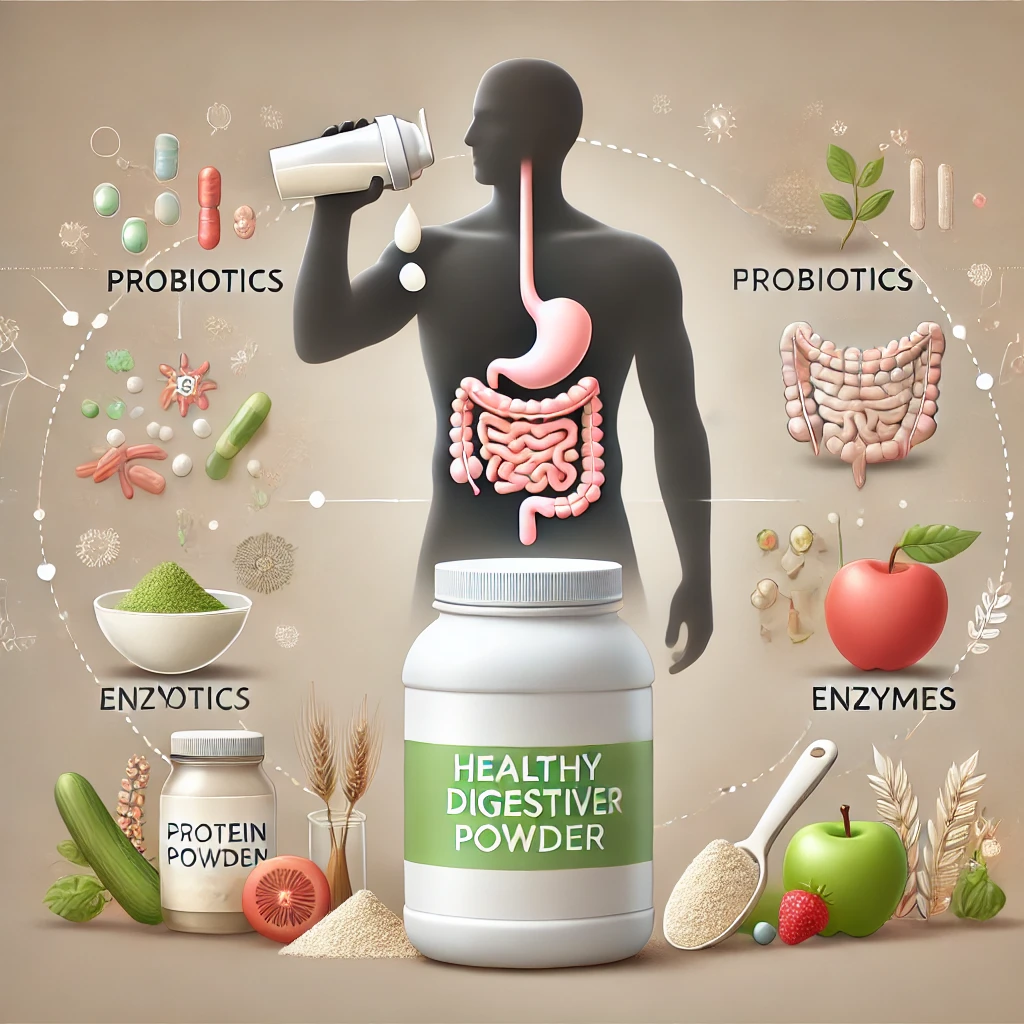Introduction
Protein powders are one of the most popular supplements on the market today, used by athletes, fitness enthusiasts, and even people just trying to fill nutritional gaps. Despite its widespread use, many myths surround protein powder, leading people to question whether it’s safe for everyone. In this article, we’re going to bust those myths and answer the real question: is protein powder safe for everyone?
Table of Contents
Understanding Protein Powder
What is Protein Powder?
Protein powder is a concentrated source of protein derived from either animal or plant sources. The most common types include whey (a byproduct of cheese production), casein, and plant-based options like soy, pea, or hemp protein. Each type has unique benefits, with some being faster to digest (like whey) and others offering a slower release of protein (like casein).

Why Do People Use Protein Powder?
People use protein powder for various reasons, ranging from building muscle to simply getting enough protein throughout the day. Athletes often use it for muscle recovery after intense workouts, while others use it as a convenient way to meet their dietary protein needs, especially if their diet doesn’t include many high-protein foods.
Common Myths About Protein Powder
Myth #1: Protein Powder is Only for Bodybuilders
A common misconception is that protein powder is solely for bodybuilders and those who spend hours in the gym. In reality, protein powder is beneficial for anyone looking to boost their protein intake. Whether you’re an elderly person aiming to maintain muscle mass, someone recovering from surgery, or just trying to eat healthier, protein powder can fit into a wide variety of diets.
Myth #2: Protein Powder Damages Kidneys
This myth comes from the idea that too much protein overworks the kidneys. However, for healthy individuals, there is no solid evidence that moderate protein powder use harms kidney function. The concern is primarily for people with existing kidney disease, who may need to limit protein intake. For the average person, protein powder can be a safe supplement when used as directed.
Myth #3: All Protein Powders Are the Same
It’s easy to think all protein powders are created equal, but they vary significantly in terms of quality, ingredients, and nutritional value. Some are packed with artificial flavors, sweeteners, and fillers, while others are pure, minimally processed sources of protein. Whey, casein, and plant-based powders all have different absorption rates and amino acid profiles, making them better suited for different needs.
Myth #4: Protein Powder Causes Weight Gain
Another misconception is that protein powder automatically leads to weight gain. The truth is, protein itself doesn’t cause weight gain—excess calorie intake does. Protein powder can be part of a weight management strategy, helping to control hunger and support muscle growth, which can, in turn, boost metabolism.
Myth #5: Natural Foods are Always Better Than Protein Powder
While it’s true that getting protein from whole foods is ideal, protein powder can be a convenient alternative. Whole foods like eggs, chicken, and legumes offer additional nutrients, but protein powder serves as an easy supplement, especially when cooking or eating a balanced diet isn’t practical. It’s about finding a balance that works for your lifestyle.
Is Protein Powder Safe for Everyone?
Safety of Protein Powder for Different Age Groups
Protein Powder and Young Adults
For teenagers and young adults, protein powder can be safe, but it’s important to not overuse it. It should be viewed as a supplement to a balanced diet, not a replacement for real food. Young people often have high protein needs, especially if they’re active, but getting it from whole food sources should still be the priority.
Protein Powder and the Elderly
Older adults may also benefit from protein powder, as maintaining muscle mass becomes more challenging with age. Protein supplementation can help with preserving muscle and promoting recovery from injuries.
Considerations for People with Health Conditions
Protein powder may not be suitable for everyone, especially those with kidney or liver issues. It’s important for individuals with such conditions to consult with a healthcare professional before adding any high-protein supplements to their diet.
Benefits of Protein Powder
Convenience and Nutrient Density
One of the biggest advantages of protein powder is its convenience. It’s a quick way to add protein to your diet without the need for cooking or meal prep, making it an excellent choice for people with busy lifestyles.
Muscle Repair and Growth
Protein is crucial for muscle repair, and protein powder helps provide the necessary amino acids quickly after a workout, promoting faster recovery and growth.
Supporting Weight Management
Protein helps in controlling appetite and maintaining muscle mass, both of which are key factors in managing weight effectively. By keeping you fuller for longer, protein powder can aid in reducing overall calorie consumption.
Potential Side Effects of Protein Powder
Digestive Issues
Some people may experience digestive issues with protein powder, especially if they are lactose intolerant and consuming whey. Plant-based proteins or lactose-free options can be better choices for these individuals.
Allergic Reactions
Protein powders can sometimes contain allergens such as dairy or soy. Those with allergies should carefully read the ingredients and choose a protein powder that suits their needs.
Additives and Artificial Ingredients
Not all protein powders are created equally. Some contain artificial sweeteners, preservatives, and fillers that may not be healthy. It’s crucial to choose high-quality products with clean, simple ingredients.
Choosing the Right Protein Powders

Types of Protein Powders and Their Benefits
Different types of protein powders have different benefits. Whey protein is quickly absorbed, making it ideal for post-workout use, while casein is digested more slowly, providing a steady supply of protein. Plant-based proteins like pea or hemp are great for vegans and those with dairy sensitivities.
Tips for Selecting High-Quality Protein Powder
When choosing a protein powder, look for products with minimal ingredients, no added sugars, and organic or grass-fed labels. These tend to be higher quality and free from unnecessary additives.
How to Use Protein Powders Safely

Recommended Dosages
The amount of protein needed depends on factors like age, weight, and activity level. For most people, 20-30 grams of protein powder per serving is enough. Exceeding this regularly can lead to unnecessary calorie intake or strain on digestion.
Timing Your Protein Intake
The best time to use protein powder depends on your goals. For muscle recovery, it’s best taken within 30 minutes of finishing a workout. For general dietary supplementation, it can be consumed at any time throughout the day.
Debunking the Fear Around Protein Powder
The Role of Marketing in Spreading Myths
Marketing often paint protein powders as a magic solution for muscle gain or weight loss, leading to misinformation. By understanding that it’s just a tool—one part of a balanced diet—people can make more informed choices.
Scientific Evidence Supporting Protein Powder Safety
Numerous studies support the safety of protein powder for most people. Experts agree that when used in moderation and as part of a balanced diet, protein powder is a convenient and safe way to meet protein needs.
When to Avoid Protein Powder
Individuals with Specific Medical Conditions
If you have a medical condition that affects protein metabolism, such as kidney or liver disease, it’s crucial to consult a healthcare provider before using protein powder.
Consulting a Health Professional
Always consult with a nutritionist or healthcare provider to ensure protein powder fits into your specific dietary needs and goals.
Frequently Asked Questions
FAQ 1: Can protein powder replace meals?
No, protein powder should not replace balanced meals as it lacks many of the vitamins and minerals found in whole foods.
FAQ 2: How much protein do I actually need?
The average adult needs about 0.8 grams of protein per kilogram of body weight, though active individuals may need more.
FAQ 3: Are there risks of consuming too much protein powder?
Excessive consumption can lead to digestive issues, dehydration, and strain on the kidneys, particularly in those with pre-existing conditions.
FAQ 4: Is plant-based protein powder better than whey?
It depends on your dietary preferences and digestive tolerance. Plant-based powders are ideal for those avoiding dairy, while whey is a high-quality, complete protein source.
FAQ 5: Can teenagers safely use protein powder?
Yes, but under supervision and as part of a balanced diet. It’s important for teenagers to get most of their nutrients from whole foods.
Conclusion
Protein powder can be a useful, convenient tool to help meet your daily protein requirements. While it’s not necessary for everyone, it can support muscle growth, aid in weight management, and fill nutritional gaps. By understanding the facts and dispelling the myths, you can make informed choices about whether protein powder is right for you.








